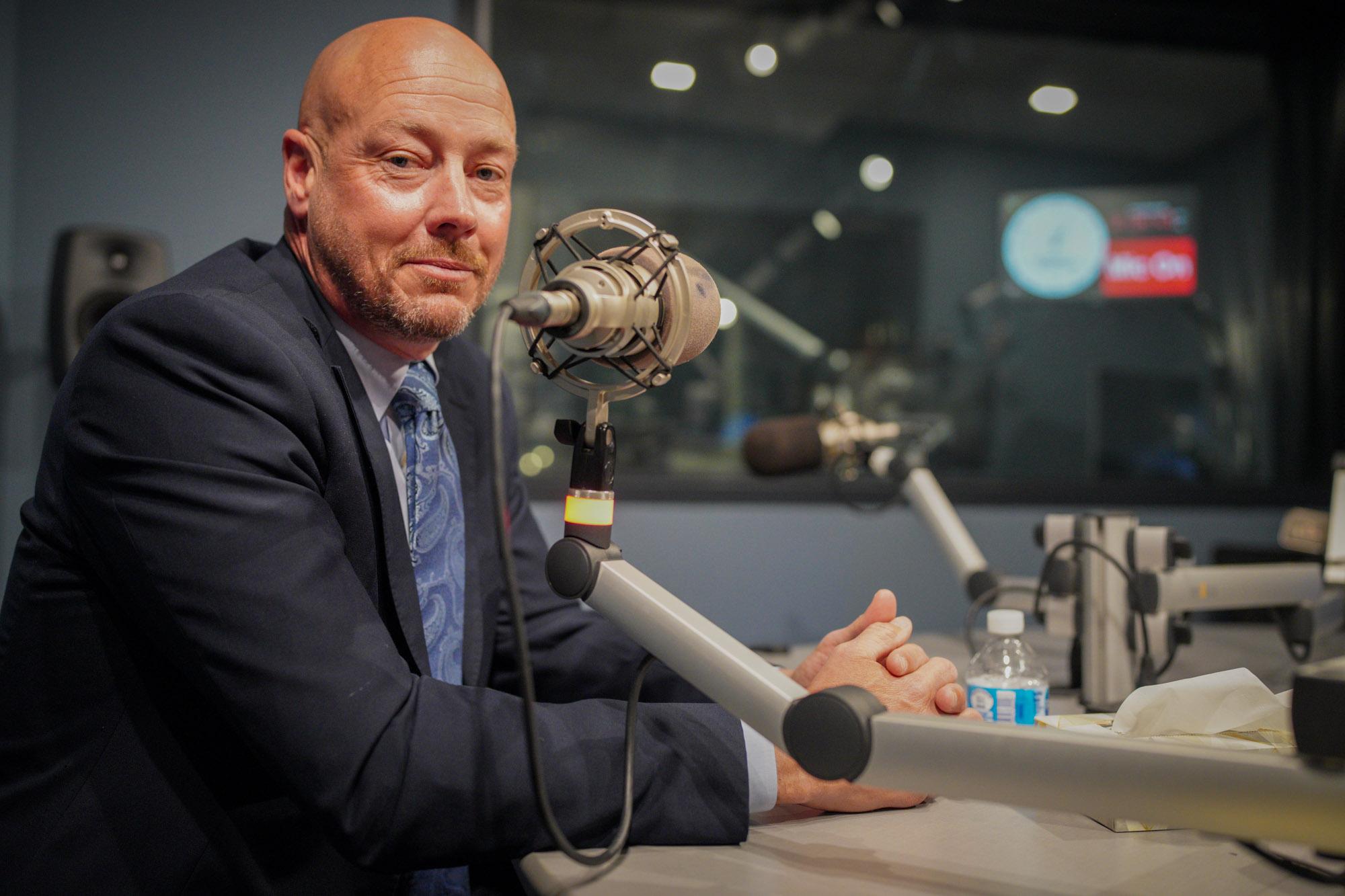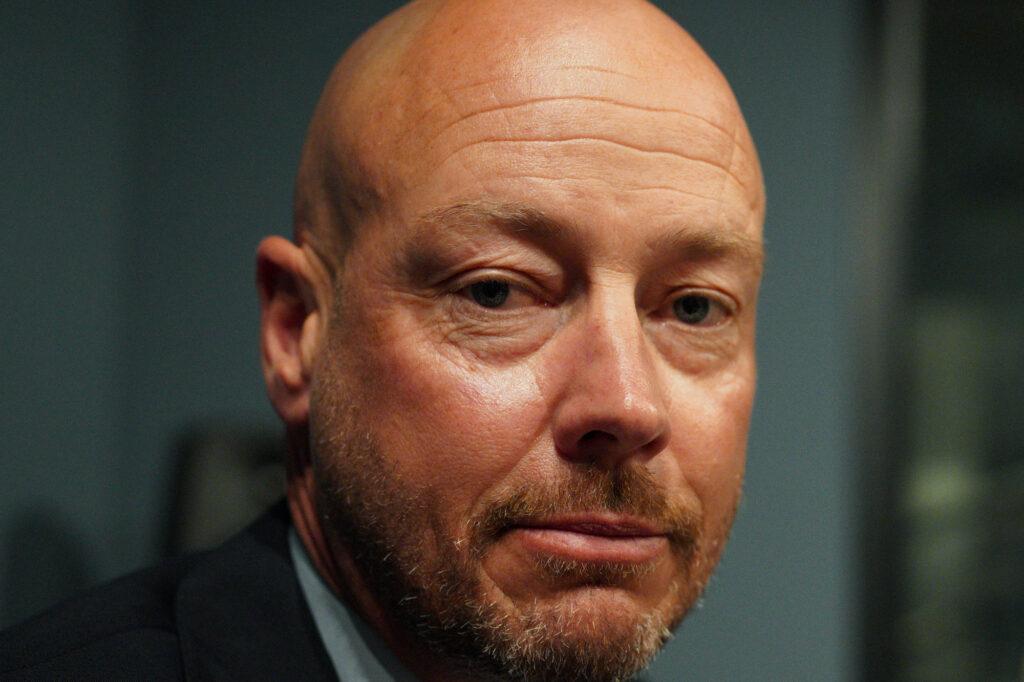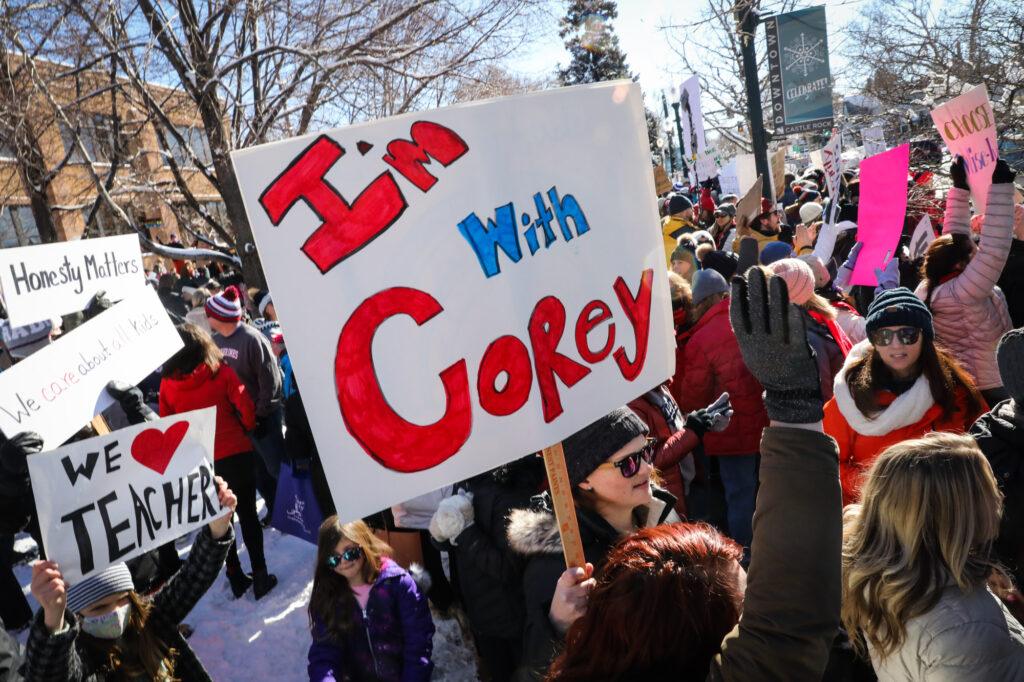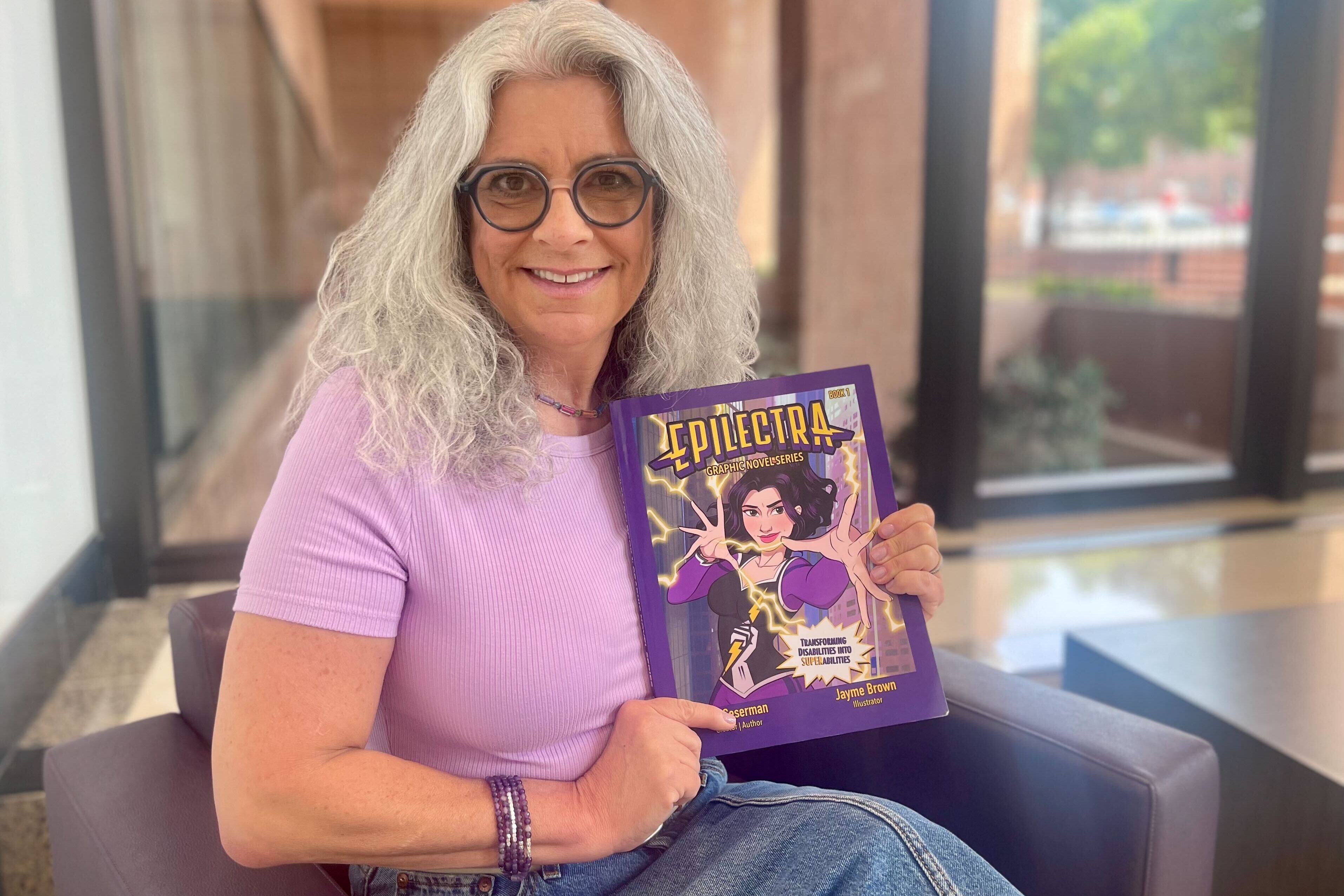
When Corey Wise was fired as superintendent from Douglas County Schools, it left students and parents at one of Colorado's largest school districts outraged. Students walked out of class and educators and parents rallied around him.
Now Wise says in an official complaint filed with state and federal officials that his dismissal by the school board’s new majority members was illegal.
The complaint says that his firing was retribution for Wise’s attempts to protect students' civil rights.
Wise spoke to Colorado Matters host Ryan Warner about his firing, his official complaint and what he makes of polarization on school boards. Here’s what he had to say.
This interview has been edited for clarity and length.
Warner: Tell us more about your discrimination and retaliation claim. How do you think you were discriminated against?
Wise: When you look at the work that we do as educators, we have to provide a safe and quality education for every single student. Through COVID and with the Douglas County Board of Health’s public health order that allowed for mask exemptions, we couldn't provide a safe environment for our most chronically ill, and we have to protect those at risk.
Warner: That is if there were unmasked staff and children?
Wise: Yeah, and we couldn't protect them. So as we go through and you have a lawsuit, which even backs up the need, not only the legal need, but doing the right thing and standing up for those who need extra protection and support is critical.
Warner: The judge ruled in your favor in the district’s lawsuit that alleged the public health board’s order violated the civil rights of students with disabilities.
Wise: Exactly. And you know, on the other end, the equity policy that was changed was meant to look out and represent each and every individual. We have students that are underperforming, and we need to help them. Our Black students have performed lower than others. Our Latino, Hispanic students have as well. We need to address that. I think when you look at those things I did, of standing up as a leader and as a district and doing my job with board policy and work, that's the retaliation and the infringement on rights. That's not OK.
Warner: The pursuit of those policies, you say, is why you were fired. Doesn't a newly elected school board with a bit of a changed mandate have the right to say, “Well, we thank you for your service in those regards. And we'd like to move on now”?
Wise: We all have to work with the laws and civil rights of others, even in the case of any termination, with cause or without cause — in this case it was termination without cause. But violating my civil rights when I stood up, and we stood up, for those students who have disabilities and those students are most at risk, is not OK.
Warner: So the idea is that the work you were doing, the nature of it and the nature of the students for whom you are doing it, that is protected, correct?
Wise: And that protected status and my work advocating and standing up for those students who have protected rights and those employees who have protected rights is critical. Those are the violations.
Warner: What should the board have done if they disagreed with you?
Wise: Board elections happen. Boards will change. A superintendent needs to be able to work for different boards and different individuals. So coming in with a new board, it's my job to work with them, but it's also their job to work with the school district and the superintendent. And I think you have to make sure you're clear expectations. When you're doing the work and you're getting positive feedback up until the time where they set up a meeting with me to say they have made up their minds, they have had their discussions and so forth — that's not the right way to go about it.
Warner: It felt like a done deal in other words.
Wise: Absolutely.
Warner: So the board president Mike Peterson and vice president Christie Williams asked you to meet for coffee. I suppose you had no idea what that coffee would be about.
Wise: That was a unique meeting. To call and set up a meeting in person when he knew that I was going out of town on PTO with my wife, that's different. It was a pretty clear ultimatum of what they wanted and what they had talked and agreed upon.
Warner: Your departure is what they wanted.
Wise: It was, “We want you to resign. We want you to resign when you get back Tuesday night. We want to know by Tuesday night that it’s effective Wednesday. If you don't, we're prepared to terminate and we feel we will go for a cause. And we have a case.” Short meeting, but very clear an expectation and ultimatum.

Warner: So what was the timeline? The meeting took place on a Friday,
Wise: Friday morning, 7 a.m. probably done by 7:12 a.m. It turns your life upside down. I've never experienced that before.
Warner: The board members have publicly stated a variety of reasons for your firing, including a lack of trust in you and what they say is your inability to make decisions. Had they brought any of those issues to your attention before?
Wise: No. In fact, you look at board meetings, not ever brought up in board meetings. So everything up to that was positive. I'm confident in the work. I don't think there is a cause, or would've been cause, and they had their chance and terminated me without cause. It’s not OK. The termination has an impact on my retirement and my family, but these inaccurate statements and the reasons why they say they fired me impact my career, my longevity.
Warner: And your reputation presumably.
Wise: Darn right.
Warner: The four new board members ran on a campaign of letting parents decide whether to mask their children. They also expressed deep concerns about the district's equity policy. Did you have an idea election night or the day after that you might not last as superintendent? Was that a thought that had entered your mind?
Wise: You know, I think any time you have board majority change, that always goes through your mind: What are they thinking? They said they were going to give me a chance. They said they weren't going to make changes. They said it during the elections. They said that in their interviews once they got elected and they made other comments on that.
Warner: You no doubt had some awareness that they were concerned about the equity policy and might make modifications. Would you have been willing to negotiate what that plan looked like under a new board, had you stayed?
Wise: I think you always try to find win-win. I would not be willing to break the law. I'm not gonna discriminate against others. When you read the equity policy, it is to be intentional, to be systemic, to make sure that we don't discriminate, to make sure that we create an inclusive environment for students. It’s also there to make sure we look at the achievement and growth and to address it and improve. For employees, it was there to create a culture that is non-discriminatory, that is positive and that helps hire employees of color, and to also look at compensation.
Warner: A lot of this was not negotiable for you.
Wise: I've tried to be myself throughout my entire career and not just say things, but see those actions that back that up. The policy really makes an intentional purpose where you come back and monitor and you improve it.
The polarization and the infusion of talk of critical race theory and ripping down the right work, that’s a bigger movement and push. That platform is inaccurate and it tries to be about adults and bigger systems than what we're doing by people and schools for students and employees, and what's best in each situation.
Warner: The board president and some other board members have referred several times to what they say are practices in some school classrooms that divide students into oppressor, victim groups, by race; schools that have students participate in an exercise to define their level of systemic oppression. It's been called an intersectionality score. To your knowledge, is any of that happening in Douglas County schools?
Wise: We always tackle relevant topics. To say that we divide students that way to talk about oppression is not true. I would like to see them bring some reality to that. I have not seen that. What I see are great teachers and students interacting with content. I would love for them to really give and show specific examples.

Warner: The charging document says you suffered significant emotional distress after you were fired. Tell me how it affected you.
Wise: I wanted to stay longer. I wanted to be there more than just three years. Let's look at four or five, six and see where we go. So when you go into a meeting and you hear that they want you to resign or they're gonna terminate you, it throws your life upside down. Loss of sleep, fear, anxiety, reflection. Then when everything happens, it continues. You don't have a job. Things aren't given.
Warner: What is the outcome you want? Is it to make one-termers of these school board members? Is it to make sure that the equity policy continues on a strong path?Is there even compensation involved in this? What is the perfect outcome for you?
Wise: This is where I'm gonna keep being me in this. Challenges are part of life. Douglas County School District is where my career's been, so it's a part of who I am. It's in my heart. We've gone through this and we've all said, we're not just gonna be quiet. We need to stand up for what's right.
What I want in this is to call out those illegal and wrong actions, get past the elections that are about sides and that are divisive. I want to think about building forward and setting goals and plans and measuring them so you are moving from good to great and have a level of excellence and have those actions that back it up that aren't always pulled by agendas and groups.
Warner: So you want something clearly on the record from a judge saying that this was wrong. That's what I hear you saying. And that it maybe sends a message to other educational circles.
Wise: Yeah.
Warner: Do you want money for your suffering and for what this might have done for your career?
Wise: We don't get into education for money. This isn't about money, but I will say it's not only the emotional impact. This has an impact on my life. I need benefits for my family, health benefits. To have a career and income, Even just the impact on my retirement over 30 years is substantial. So their decisions aren't just about me as a person or a job, but also the ripple effect on trust, emotions, career, my family, what everyone goes through and the school district — it's about all of that. That's more the question for them as they make their decisions. Do they understand responsibility and the magnitude and impact of their decisions and what that can do?
Warner: In recent weeks, other school districts like Colorado Springs District 11 have parted ways with their superintendent, voted to do away with its department of equity and inclusion. There have also been allegations in District 11 of racist comments from board members. Cyou fix polarization and politicization of school boards or is that cat out of the bag?
Wise: I'm an idealist. I believe in hope and I believe in setting a plan to meet those goals. I would like to say, we can fix that and be perfect, but I think it's ongoing and there's always gonna be changes and adaptations. But I think we can all be better about how we take out some of the nonfacts, some of the things that are said to get a story or said to get elected. We can go in and rip down any person or organization, but when are we gonna start finding how we're more common and how we start building up and how we build together?
Warner: So I hear those questions being raised. I don't hear that you necessarily have the answers or the path.
Wise: If any of us have the answers, we'd be in great shape, but I will say this: individuals can have a huge influence. We start getting a collective piece and that's where you see great change and impact.
Warner: Do you see your potential lawsuit as a way to send a message about the effects of polarization?
Wise: I don't know. I think I need to represent myself, my family and what's right. You know, you look at the number of people who are positively supporting me, it's humbling. The employees, the community, the students and even from people across the nation. I really see that support as representative of how we can be better.
So in some ways, yes, and I'm willing to be that leader who can be a superintendent during COVID and accept the largest challenges and the most difficult of times, but I'm also humble enough to say it's not about an individual. It's about a we, and there's probably others a lot better at that.








